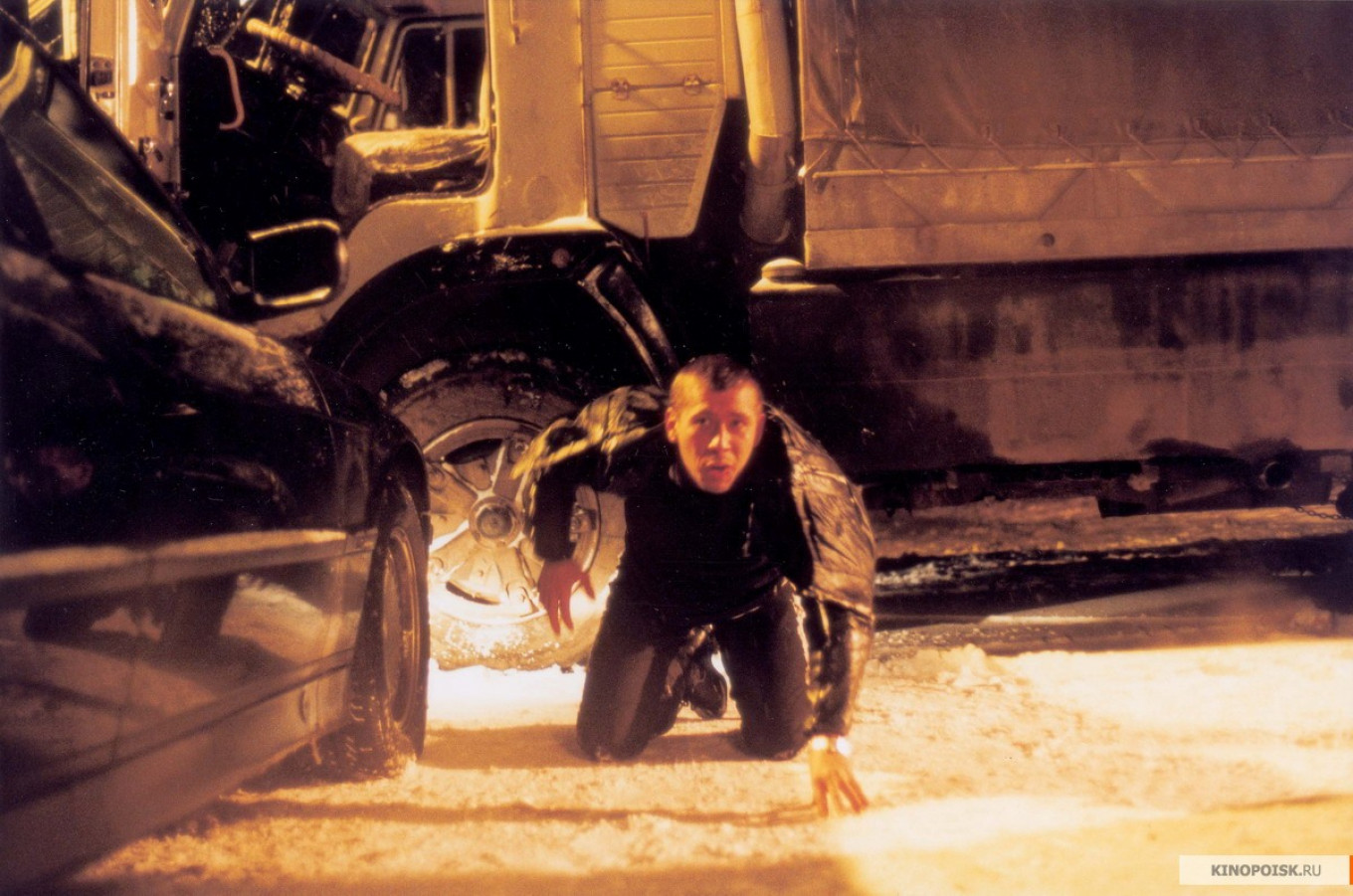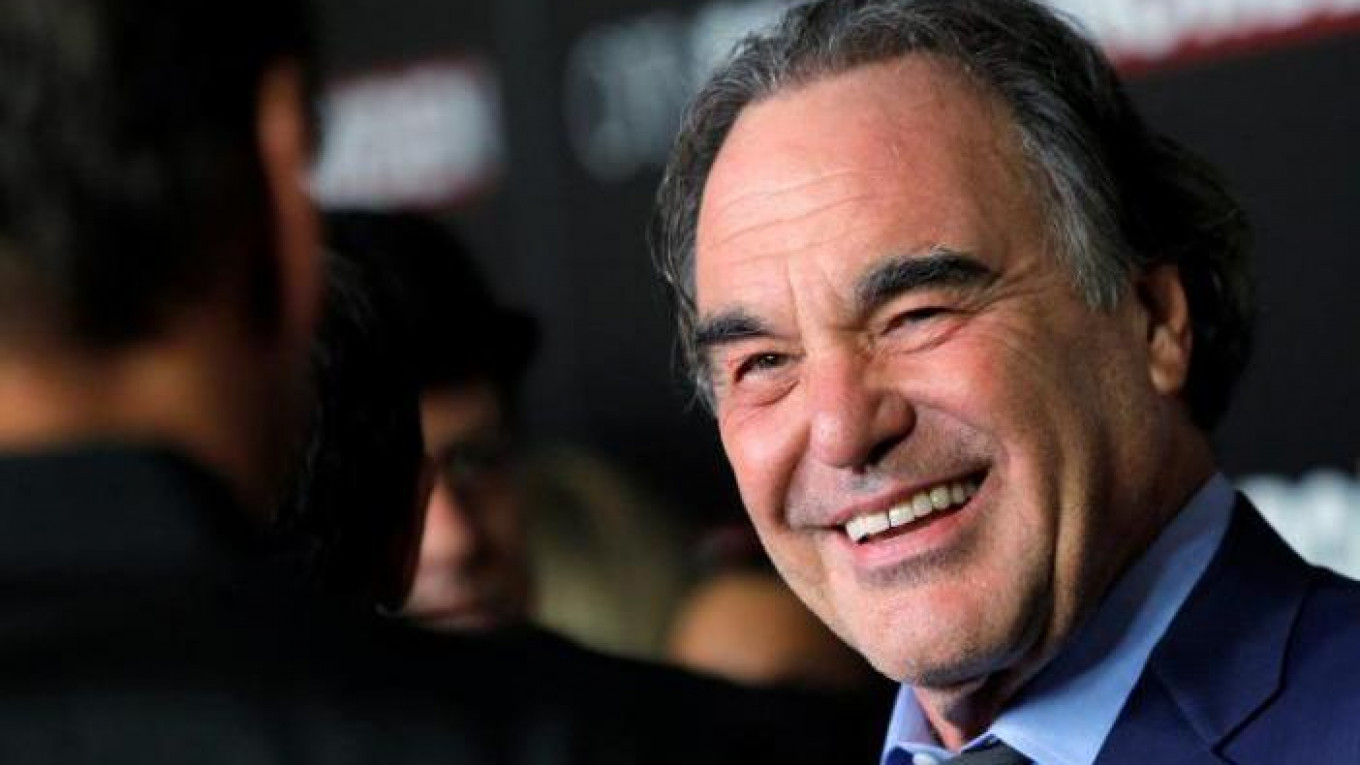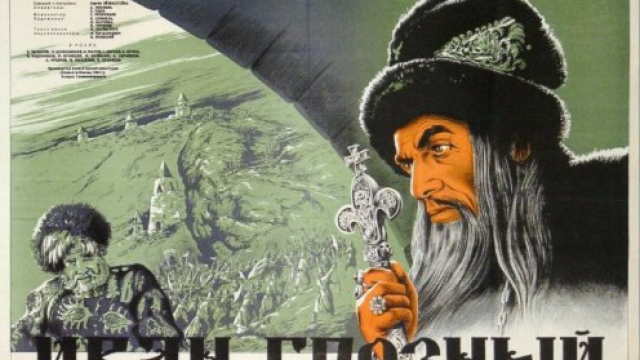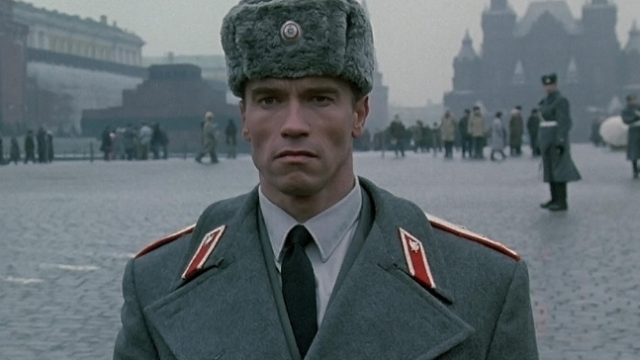This week it’s "fake news plus three movie classics and a side of youth angst" on Moscow TV. Yes, small screen viewers get a nicely mixed soup-to-nuts diet featuring four hours of pretend-important chit-chat, three great Russian films and two young adult features that will by turns rev your engines and make idling in neutral seem adventurous. Here’s the where and when:
On MONDAY Channel 1 presents the first installment of Oliver Stone’s “The Putin Interviews” (2017), a film assembled over two years from conversations between the once-prominent American director and Russia’s potential president-for-life. Given the flood of faux-leaks from and multiple preview screenings of this documentary, it’s fair to describe the four-night marathon beginning this evening as the least-anticipated TV event in recent history.
As Alexey Kovalev noted last Wednesday in The Moscow Times, “Every trifling bit of yet-unaired interview, every tired, fact-less banality Putin says is recycled and catapulted to top national news by hundreds of loyal outlets.” Tonight’s resulting lack of suspense would be less an issue if the interview’s substance were significant or if the two principals themselves were more telegenic. But it isn’t and they aren’t.
In the end, the journal Foreign Policy summed things up neatly and dauntingly: “Oliver Stone’s ‘Putin Interviews’ will teach you little about Putin and even less about Russia,” as the series “somehow manages to both spout the Kremlin line and fall back on the laziest American clichés about Russia.”
The bottom line is even simpler: a non-premiere premiere that gives you Oliver Stone talking to Vladimir Putin for four hours is two things: a fake event and a fair definition of the epithet “must-miss TV.”
The Putin Interviews / Путин. Channel 1, Monday at 9:30 p.m.; Tuesday-Thursday at 9:35 p.m.
But don’t despair over MONDAY: Well before Stone and Putin numb the evening airwaves, Echo TV is showing Grigory Kozintsev’s masterful “Hamlet” (1964). This is an internationally praised Shakespeare production that boasts a performance many consider the greatest dramatic role in the great career of Innokenty Smoktunovsky (“the Russian Olivier”) – and indeed, one of the 20th century’s finest cinematic renditions of the melancholy Dane in any language.
Smoktunovsky is marvelously complemented by Anastasiya Vertinskaya as Ophelia and Mikhail Nazvanov (in his final role) as the King, along with a supporting cast that's good down to the Gravedigger (Viktor Kolpakov). The translation is Boris Pasternak’s classic and the eerily effective score is by Dmitry Shostakovich.
What else can you say? How about, “This production is so good that, unlike most subjects honored by the Soviet postal system, the 1964 'Hamlet' actually deserved its 10-kopek commemorative stamp.”
If Stone-Putin is a must-miss, Kozintsev-Smoktunovsky fairly defines must-see TV. Nothing more dramatic is likely to appear on your screen before next year’s Donald Trump impeachment hearings.
Hamlet / Гамлет. Echo TV, Monday at 4:40 p.m. and Tuesday at 10:30 a.m.
On TUESDAY evening adrenaline-challenged viewers can buckle up for a ride in Pyotr Buslov’s hard-charging "Bimmer" (2003). With a stolen BMW and four buddy-heroes who either represent or run into everything wrong with this country at street level 14 years ago, this is one badass Russian road movie – but with excellent music (Critics Guild Best Score, 2003). Yes, from corrupt cops and mafia-run businesses to crudity and brutishness so commonplace they hardly register after a while, "Bimmer" would be a gritty parade of stuff you’d rather avoid except for two things:
(1) the film exudes a remarkable energy (even as you flinch), with the talented guy-ensemble cast nicely handled by the debuting Buslov (using a script he wrote with Denis Rodimin); and
(2) there actually is a moral here that rises above the noir-nihilism. In the end, the heroes-in-quotation-marks do get their just deserts – and yet they still qualify, one feels, for a certain viewer sympathy. Their mantra – "Не мы такие, жизнь такая" (“It's not us, it's the way life is”) – can be called self-serving rationalization or casual fatalism; yet the fact is that these dudes did not set the table but do have to eat at it.
But you be the judge. And when you’ve calmed down after this exciting if bumpy field trip, ask yourself what this generation of gangstas are probably doing today…
Bimmer / Бумер. TV1000 Russkoe Kino, Tuesday at 6:10 p.m.

WEDNESDAY
poses a question many new-millennium film fans have likely asked
themselves – Is there a reason to watch a Stalinist musical comedy? –
and offers three good answers with “Cossacks of the Kuban” (1949).”
This Ivan Pyrev Mosfilm production is a classic late-totalitarian
fun-on-the-collective-farm eye-'n'-ear-popper that is worth your while
for (1) what it tells us about the other-worldly duality of its era; (2)
its value as a technical achievement; and (3) its actual entertainment,
in particular the songs.
A few historical details: The film’s working title was “The Happy Market Fair” (“Весёлая ярмарка”), but upon screening the (first) final version, Stalin (a) rechristened it as above and (b) uttered the infamous phrase – equally frightening if taken as irony, cynicism or simply Grand Delusion – “So things on the agricultural front are pretty good after all” (“А всё-таки неплохо у нас обстоит с сельским хозяйством”). To which everybody in the room doubtless replied “Right, chief!”
One of the first Soviet color productions (and shot on film from the famed Shostkinsky factory), “Cossacks” is an eyeful, certainly, with the kolkhoz market at its center looking like nothing less than an astonishing Horn of Plenty. That such earthly riches represented pure fantasy in the impoverished Soviet countryside of 1949 was self-evident – so much so that Nikita Khrushchev’s criticism of the film when he pulled it from circulation in 1956 (“It covers reality with a coat of lacquer”) amounted to restating the obvious.
Reality was never the point; diversion-distraction-escapism was. But when “Cossacks” was re-released in 1968 after a de-Stalinizing “restoration,” director Pyrev's movie had essentially lost the one character people really needed to escape from – the Man Behind the Curtain, to whom no attention was now paid. Still, while the original version of “Cossacks” is still locked away (alas), Isaak Dunaevsky’s great score and upbeat songs remain in the post-cult edition, and they are very real cultural heritage.
“Cossacks” can infuriate people, of course – especially senior citizens who themselves recall 1949 as rural disaster victims – but that doesn’t make the film less expertly crafted or historically symbolic. If Leni Riefenstahl’s Third Reich epics are worth watching and learning from, so is this – and “Cossacks” has catchy songs!
Cossacks of the Kuban / Кубанские казаки. Dom Kino, Wednesday at 10 p.m. and Thursday at 9:25 a.m.
THURSDAY night brings another classic and a new documentary about its maker as Kultura airs Larisa Shipitko’s remarkable “Ascension” (1976) followed immediately by the Konstantin Golenchik feature “The Golgotha of Larisa Shipitko” (2017). Both deserve big small-screen audiences.
“Ascension” represented a signal contribution to the national cinema archive that also drew immediate attention abroad: It won, among many honors, the Soviet Union’s first Golden Bear at Berlin. Adapted by Yury Klepikov and Shipitko from Vasil Bykov’s celebrated novella “Sotnikov,” the film tells the story of two partisans captured by the Wehrmacht in rural Belarus during the bleak winter of 1942.
How they perceive, debate and then deal with their fate has led the film to be called both “an existential parable about the value of life” and “an arresting cinematic sermon rife with Christian imagery” – each of which tells you that, at the very least, we are a long way indeed here from a standard Soviet war movie of the late Brezhnev era. “Ascension” has also been called a “shattering” film, and viewers should be advised that the Ales Adamovich account of hard men weeping at an initial closed screening in 1976 is not difficult to believe.
The fate of the movie’s director also gives one pause, as Golenchik makes clear in his documentary. Shepitko was a student of Alexander Dovzhenko at the State Film Institute (VGIK), after which she made three features with evident skill and ascending mastery of the medium before her untimely death in a car accident at 41 – a terrible loss for both those close to her (starting with director Elem Klimov, her husband) and for the Soviet film enterprise in general.
“Golgotha” tells the story of how Shipitko came to make her final film: confined to a hospital after an earlier accident, the director read and reread two books – Bykov’s “Sotnikov” and the Bible – and gradually decided that a movie had to be made of the former under the influence of the latter. Which she did.
Ascension [aka The Ascent] / Восхождение. Kultura, Thursday at 9:35 p.m.
The Golgotha of Larisa Shipitko / Голгофа Ларисы Шепитько. Kultura, Thursday at 11:45 p.m.
Late FRIDAY night Kultura once again opens its Portrait of a Generation rubric, this time for “Drifting” (2011), a love story (of sorts) set among Moscow undergrads with a lot of time on their hands. This was Anton Zaitsev’s first feature, and it demonstrated at the very least that the writer-director knew how to borrow effectively from good sources and get himself noticed for it.
Like Julie Taymor’s marvelous “Across the Universe,” whose action is centered on Beatles’ songs, “Drifting” is based on early works by the legendary Soviet rock singer-songwriter Viktor Tsoi (1962-1990); and in the spirit of the French New Wave of the 1950s-60s (“Cinema is truth twenty-four times per second”), Zaitsev clearly didn’t want anything to slip by him: as one critic put it, “The director is his own version of Godard, getting everything he can down on film as he tries to catch the rhythm of life and show the uniqueness of each moment.”
What Zaitsev got down wasn’t a great movie, in the end, but it was an engaging Youth Angst feature that brought him a well-deserved Best Debut Director nomination from the Russian Film Critics Guild. Anton Shagin is somehow both affecting and affected as the rocker-idler Solovei, and you come away from “Drifting” with the feeling that both he and the director have a great deal ahead of them. Tune in and catch this promising vision of both “back in the day.”
Drifting [aka The Idlers] / Бездельники. Kultura, Friday at 11:50 p.m.
Mark H. Teeter is the editor of Moscow TV Tonite on Facebook
A Message from The Moscow Times:
Dear readers,
We are facing unprecedented challenges. Russia's Prosecutor General's Office has designated The Moscow Times as an "undesirable" organization, criminalizing our work and putting our staff at risk of prosecution. This follows our earlier unjust labeling as a "foreign agent."
These actions are direct attempts to silence independent journalism in Russia. The authorities claim our work "discredits the decisions of the Russian leadership." We see things differently: we strive to provide accurate, unbiased reporting on Russia.
We, the journalists of The Moscow Times, refuse to be silenced. But to continue our work, we need your help.
Your support, no matter how small, makes a world of difference. If you can, please support us monthly starting from just $2. It's quick to set up, and every contribution makes a significant impact.
By supporting The Moscow Times, you're defending open, independent journalism in the face of repression. Thank you for standing with us.
Remind me later.







